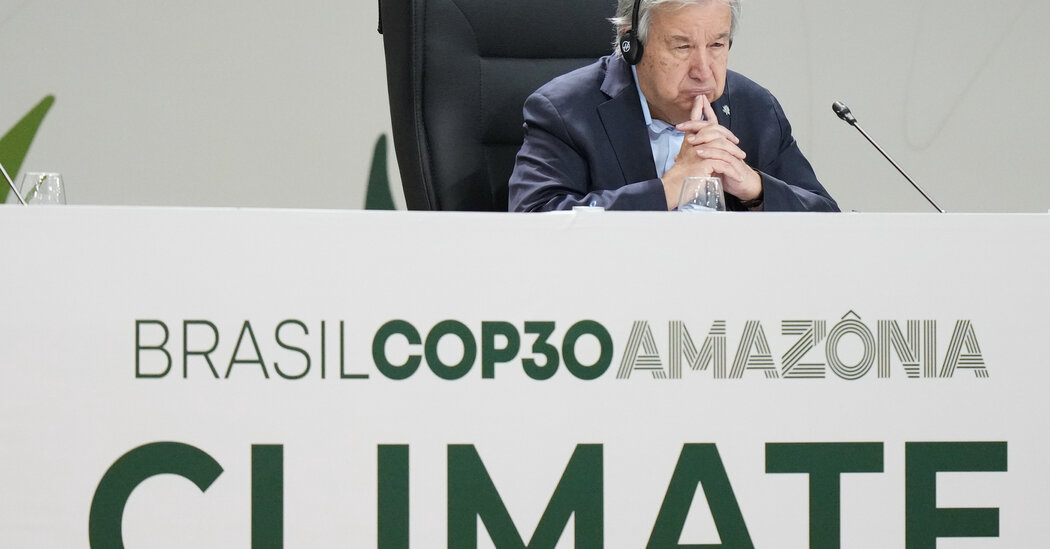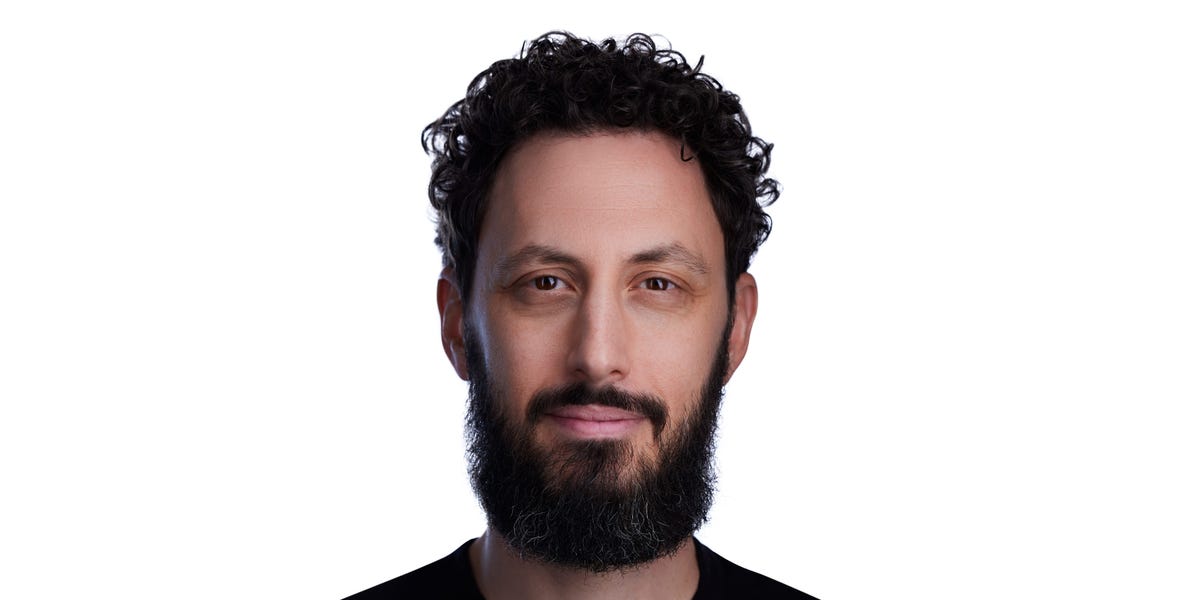World leaders have gathered in Brazil for COP30, this year’s global climate summit. Basically, it’s the World Cup of negotiations over global warming.
The venue is still under construction, with exposed plywood and plastic-wrapped exhibits around the site, David Gelles reported from Belém, the city on the edge of the Amazon where the talks will unfold over the next two weeks.
It was 10 years ago, at COP21 near Paris, that nearly every country committed to the goal of limiting global warming to 1.5 degrees Celsius, or 2.7 degrees Fahrenheit, compared with preindustrial times.
Today, the 1.5-degree target is all but out of reach. Even two degrees is looking less and less likely.
So what’s in store for this year’s negotiations? Gelles walks us through the basics.
In short: Brazil’s leaders are hoping to wrangle funding commitments from wealthy nations to help address climate change in developing countries. The broader goal (as ever) is to turn various climate pledges into action.
One conspicuous absence from this year’s talks is the United States, which has moved to exit the Paris Agreement for a second time, Lisa Friedman writes.
But some say that’s not such a bad thing, at least from a productivity perspective. Without Trump administration delegates leaning on other countries to abandon their plans to phase out fossil fuels, the thinking goes, the talks could go rather smoothly this year.
For a glimpse of how the Trump administration sometimes operates behind closed doors, read on. Three of my colleagues have written an extraordinary account of the Trump team’s approach to another global climate negotiation: the International Maritime Organization’s plans to price carbon emissions in the shipping industry.
Diplomatic hardball
Last month, diplomats from around the world were poised to approve a years-in-the-making deal to reduce pollution from cargo ships.
Then, Trump officials showed up and swiftly killed the deal, Friedman, Max Bearak and Jeanna Smialek reported.
U.S. representatives told Caribbean diplomats that they could be blacklisted from entering the United States. Other threats to nations ranged from tariffs to sanctions to the revocation of diplomatic visas, according to nine diplomats who spoke with The Times on the condition of anonymity.
It worked. But the hardball tactics stunned the delegates in attendance.
“This is really using a cruise missile, you know, to address a traffic violation,” said David Goldwyn, a former U.S. diplomat and Energy Department official.
As the article points out, the United States has always thrown its weight around in global negotiations. But the tone and tenor of America’s behavior — in particular, representatives’ use of personal intimidation — seem to represent an escalation unique to Trump’s second term.
No top Trump administration officials are expected at COP. Even Democratic lawmakers who had planned on attending are struggling to get to Brazil because the government shutdown is preventing them from using federal funds.
Senator Sheldon Whitehouse, the Senate’s most outspoken climate hawk, told Gelles that it was just as well that the Trump administration was skipping the conference.
“It’s somewhat of a relief that at least they’re not going down there to bully and torment people who are trying to do good work,” he said.
With that, the negotiations will soon begin.
Finally, a programming note: Climate Forward will be taking the day off next Tuesday for the Nov. 11 holiday. We’ll be back on Thursday, Nov. 13.
Global warming made Hurricane Melissa more damaging, researchers say
Hurricane Melissa’s path through the Caribbean last month was made more violent by climate change, according to a scientific analysis that came out on Thursday.
Researchers from the World Weather Attribution group found that the storm had 7 percent stronger wind speeds than a similar one would have had in a world not warmed by the burning of fossil fuels. They also found the rate of rainfall inside the eyewall of the storm was 16 percent more intense than it otherwise would have been.
While the economic toll of Melissa is still unfolding, one researcher estimated that the increase in wind speed may have added more than $1 billion in damages. — Sachi Kitajima Mulkey
Lost science
“Each of those dogs can cost $50,000 or more to train.”
Erin Hecht is the director of the Canine Brains Project at Harvard University. She uses M.R.I. scans to study evolution in dogs’ brains in order to answer questions about why different breeds have different strengths. The research could identify biomarkers that indicate which animals make the best service dogs, among other things. Her lab’s grants were recently reinstated, but she expects them to be canceled again in the future. Read more.
Read more from our Lost Science series and learn why we’re doing this.
Brazil proposes a new type of fund to protect tropical forests
To mow down a forest is usually lucrative. You can sell the wood and then clear areas for animals to graze, or to mine for valuable ores, or to grow corn or other crops year after year.
This is how most of the world’s tropical rainforests have vanished in the past 25 years, including in Brazil.
But the country is trying to change that. At COP30 in Belém, Brazil plans to announce an ambitious new fund designed to pay countries to keep their tropical forests standing. As many as 74 countries with tropical forests stand to gain a total of $4 billion per year if they leave their forests alone. — Somini Sengupta and Claire Brown
More climate news from around the web:
-
Americans are moving out of flood-prone neighborhoods, Bloomberg reports. Miami and Houston are among the cities seeing the largest moves.
-
After a glacier retreated by five miles in two months — 10 times as fast as the previous record — scientists were left wondering what it meant for sea level rise, The Washington Post reports.
-
European Union governments agreed to water down their climate ambitions this week. A key factor: concerns about forests’ capacity to absorb carbon dioxide after being degraded by wildfires and drought, Reuters reports.
Claire Brown covers climate change for The Times and writes for the Climate Forward newsletter.
The post Climate Diplomacy and Hardball Tactics appeared first on New York Times.



